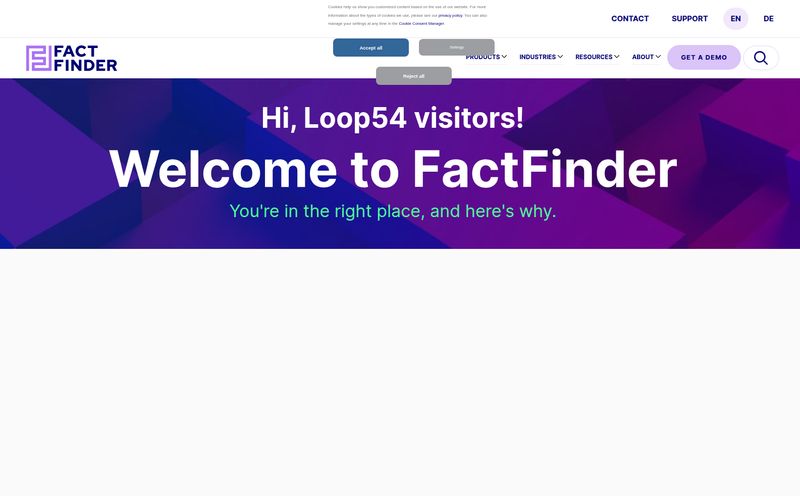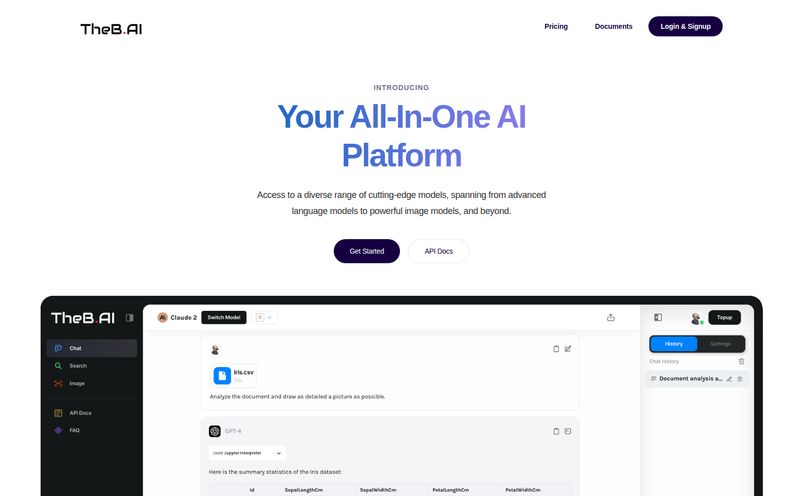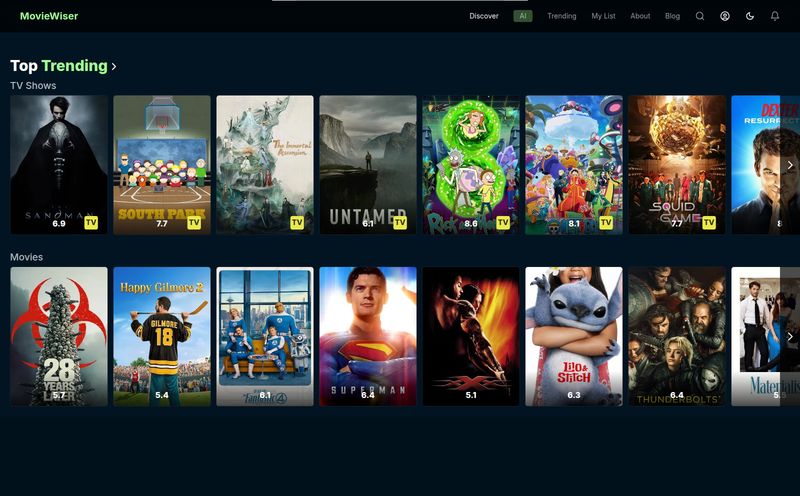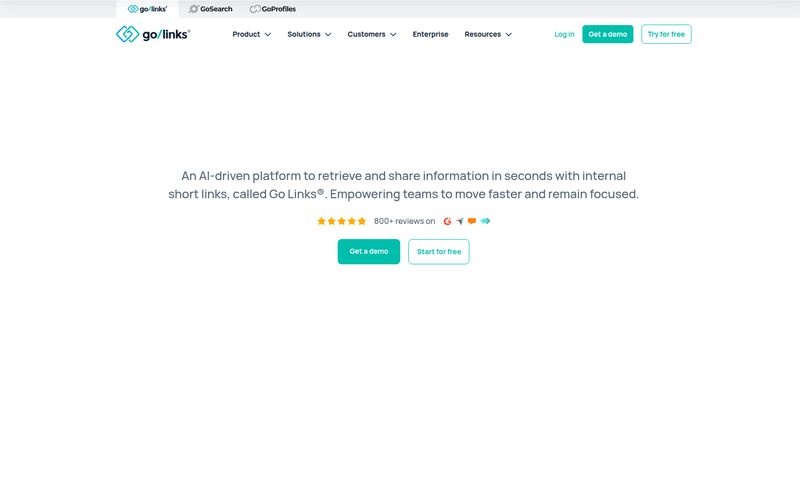You know me. I'm a digital magpie, always chasing the next shiny object in the world of SEO and productivity tech. My bookmarks folder is a chaotic graveyard of 'game-changing' AI tools, some of which actually changed the game and others that, well, didn't. A few weeks back, a name started popping up in some of the niche communities I lurk in: Keylight AI.
The pitch was simple, elegant even. An AI-powered search tool to find anything in your documents. Instantly. No more endless scrolling through 300-page PDFs looking for that one specific stat you know you saw somewhere. It was positioned as a super-powered CTRL+F for your entire digital file cabinet. And I was hooked.
So, I did what any self-respecting tech enthusiast does. I typed keylightai.com into my browser, ready to be wowed, ready to see if it could handle my messy collection of market research reports and client briefs. And I was greeted with… this.
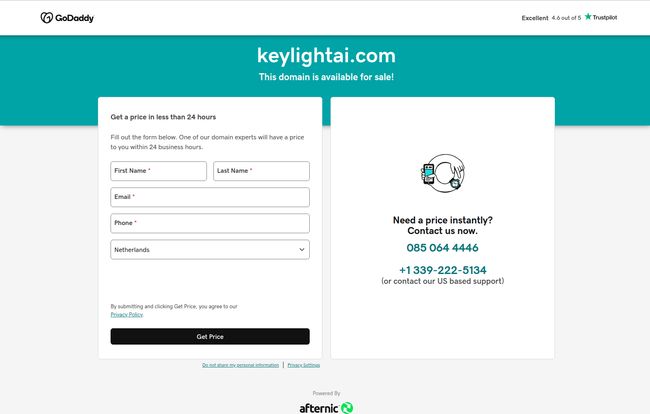
Visit Keylight AI
A GoDaddy landing page. A crisp, clean, corporate-looking page with the words that make any startup watcher’s heart sink a little:
This domain is available for sale!
Wait, what? The game-changer, the revolutionary new tool... is a dead link? A ghost ship on the digital ocean. So, what was Keylight AI, and where did it go? Let's do a little digital archaeology.
What Was the Big Idea Behind Keylight AI?
From the digital breadcrumbs left behind, Keylight AI was designed to solve a problem every single one of us has. We're drowning in information. We have contracts, research papers, ebooks, and meeting notes scattered across our drives. Finding a specific piece of data can feel like looking for a particular needle in a continent-sized haystack.
Keylight AI's proposition was to be your personal librarian, powered by artificial intelligence. You’d upload your documents, and instead of just searching for keywords, you could ask questions in natural language. Things like, “What was the projected Q3 growth in the 2022 marketing report?” or “Find the clause about termination notice in the freelancer contract.”
The system would then, supposedly, read and understand the context and serve up the precise answer, not just a list of pages where your keyword appeared. On paper, it sounds fantastic. A genuine time-saver.
The Promised Features and Potential Pitfalls
Digging a bit deeper, I found a cached description of its features. It read like a dream checklist for anyone in a data-heavy role.
The core promises included lightning-fast searches and precision accuracy, all wrapped in a user-friendly interface. A huge plus for me was the mention of customizable prompts, suggesting you could fine-tune how the AI searched for information. And of course, they touted secure and confidential data handling—a non-negotiable when you’re uploading sensitive internal documents. It's the kind of feature set that gets people excited.
But it wasn't all sunshine and rainbows. Some early whispers mentioned a fairly restrictive free plan, apparently limited to just 15 messages per month. That’s barely enough to get a feel for the platform, let alone integrate it into your workflow. There was also a requirement to upload documents in specific formats, which can be a real pain if your files are all over the place. It's a classic startup balancing act: offer enough for free to hook people, but not so much that they never pay.
| The Good Stuff (Pros) | The Not-So-Good Stuff (Cons) |
|---|---|
| Efficient document navigation | Very limited free usage (15 messages/mo) |
| Quick information retrieval | Required specific document formats |
| User-friendly interface | Uh... it doesn't exist anymore |
| Secure data handling | |
| Customizable search prompts |
So, Did Keylight AI Ever Have a Price?
This is where the trail goes completely cold. There’s no record of a public pricing page. Given the limited free tier, it's safe to assume the plan was to launch with a subscription model. My best guess? They were probably targeting a structure common in the SaaS world: a basic paid tier for individuals (maybe $10-20/month) and a more expensive 'Pro' or 'Business' tier with more features and team collaboration. But we'll likely never know for sure. It seems the ship sank before it ever set a price for its voyage.
Lessons from a Digital Ghost: The AI Gold Rush
The story of Keylight AI, or the lack thereof, is a perfect microcosm of the current AI landscape. I call it the AI Gold Rush. For every stable, well-funded company building something lasting, there are a hundred prospectors rushing to stake a claim with a cool idea and a sleek landing page.
What happened here? My money's on a few possibilities:
- Funding Dried Up: The most common reason. They had a great idea, a working prototype perhaps, but couldn't secure the next round of investment to keep the lights on and the domain renewed.
- Acqui-hired: A larger company might have bought the team for their talent, not the product itself, leaving the brand and domain to wither on the vine.
- Fatal Flaw: Maybe the tech just wasn't as good as advertised. It's one thing to make a demo, it's another to build a robust, scalable platform that delivers on its promises.
For us, the users and professionals, it's a cautionary tale. It’s exciting to jump on new tools, but it’s risky to build your entire workflow around something that doesn't have a proven track record. This is why I always run new tools in parallel with my old, reliable methods for a few months before making a full switch. You never know when one will just… vanish.
Frequently Asked Questions About Keylight AI
- What exactly was Keylight AI?
- Keylight AI was a planned AI-powered software tool designed to help users search within their documents using natural language questions. The goal was to make finding specific information in large files like PDFs, reports, and contracts much faster and more efficient.
- Is Keylight AI still available to use?
- No, it is not. The official domain, keylightai.com, is currently listed for sale on GoDaddy, indicating that the project is no longer active or has been abandoned.
- What were the main features of Keylight AI?
- It promised an AI-powered search with high speed and accuracy, a user-friendly interface, customizable search prompts for better results, and secure handling of user-uploaded documents.
- Why do some AI startups disappear so quickly?
- The AI space is extremely competitive. Startups can fail for many reasons, including running out of funding, intense competition, being acquired by a larger company for their talent (an 'acqui-hire'), or the technology not being viable at scale.
- Are there any good alternatives to what Keylight AI offered?
- Yes, absolutely. The idea of 'chat with your documents' is very popular. Tools like ChatPDF, Humata AI, and even some features within larger platforms like Notion AI and Microsoft's Copilot offer similar functionality. Always research to see which one best fits your security and feature needs.
- How much did Keylight AI cost?
- There is no public information about its pricing. It appears the tool never reached a full public launch with a pricing model, though its limited free plan of 15 messages a month suggests a paid subscription model was intended.
A Final Thought on Digital Ghosts
In the end, Keylight AI is a digital ghost—a whisper of a good idea that never got to shout. It's a reminder that innovation is messy and not every great concept makes it to the finish line. I'm a little sad I never got to try it, to see if it lived up to the hype. But for now, its story serves as a valuable lesson. And I'll keep my CTRL+F skills sharp, just in case.
Here's to the ones that almost were. Now, on to the next shiny object.
Reference and Sources
- GoDaddy: Domain registrar where the keylightai.com domain is listed for sale.
- Afternic: The GoDaddy brand powering the domain sale, as seen in the screenshot.
- TechCrunch: For general reading on the current state of the AI startup market.
